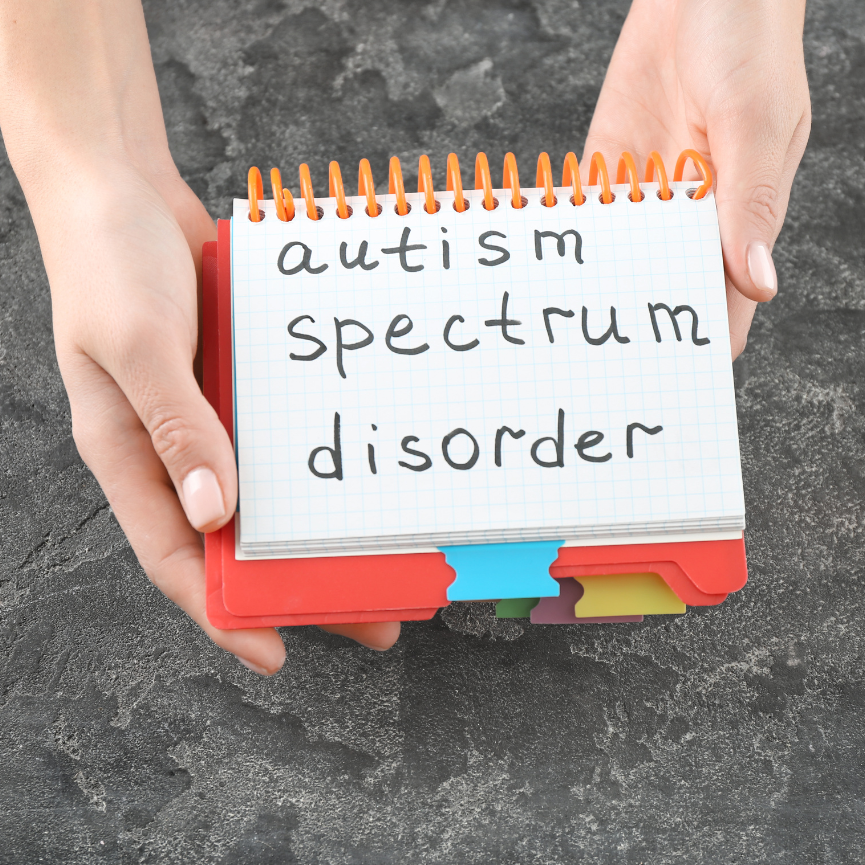
- May 23, 2024
- 1399 Views
- 1 Comments
Autism Spectrum Disorder (ASD) can be defined as a set of certain behaviors and is a spectrum condition, which affects people differently and in varying degrees (Autism Society).
It is a complex developmental impairment that often manifests in infancy. Nonetheless, a lot of kids who are diagnosed with ASD go on to lead independent, fruitful lives.
“Some of the most wonderful people are the ones who don’t fit into boxes.” -Tori Amos
Children who got early intervention showed a significant improvement in their social skills, communication, conduct, and emotional responses, according to research.
Initial signs of Autism Spectrum Disorder
Many kids seem to be growing up normally. However, it is followed by a decline in verbal and social abilities between the ages of 112 and 212.
A person's social abilities, communication, interpersonal interactions, and self-regulation may be impacted by autism spectrum disorder. ASD cannot be identified by either genetic or medical tests. It takes a variety of tools and methods to screen for and diagnose autism spectrum disorder.
A few popular symptoms and indications of Autism Spectrum Disorder
Even though each child's case of autism spectrum disorder may present differently, there are a few basic behavioral traits that pop up at every stage of growth.
Some of these are listed below:
Up to 18-month-old infants
- Delayed smile or does not smile
- Does not demonstrate attachment behavior, especially towards their primary caregiver
- Avoids people’s gaze
- Does not reach out (even in anticipation of being picked up)
- Prefers to be alone
- Does not seek to be comforted
- May be difficult to soothe
- Does not like to cuddle
- May exhibit simple repetitive behavior such as hand flapping, rocking
- Fixation on repetitive movements, such as the spinning of wheels on a toy car
- Intense dislike of any changes in routine or surroundings
- Limited or absent non-verbal communication (lack of facial gestures, no body language, lack of imitation or mirroring of actions such as clapping, waving)
- Does not respond to communication attempts by others
18 to 48-month-old children
- Prefers to be alone and avoid people’s gaze
- Does not come for comfort even when ill, hurt or tired
- Does not imitate or mirror others (or can have impaired imitation)
- May seem unaware of the presence of others
- Delayed language development
- Weak comprehension of language and non–verbal gestures
- Lacks appropriate gestures
- Unusual first words
- Echolalia (tends to repeat what is said to him / her)
- Unusual manner of speaking (monotone, off – rhythm, sing – song voice)
- Unusual preoccupation with objects and their manipulation (arranging them in a peculiar manner, spinning them)
- Repetitive body movements (hand flapping, spinning, head - banging)
- Distress over small and trivial changes in the environment
- Unreasonable insistence to maintaining routine in precise detail
- Difficulty in toilet training
- Extreme fears
4-year-old and older children with autism spectrum disorder
- May not imitate others
- Lack of awareness of others and feelings of others
- Prefer solo play
- May lack or have unusual emotional responses
- Be indifferent or socially unresponsive
- Show little expressive language
- May have delayed language development
- Rarely or never use socially appropriate gestures
- Fail to initiate conversation
- Difficulty with abstract language
- Preoccupied with narrow interests
- Attachment to unusual objects
- Be fixated on repetitive movements and spinning objects
- Rigidly adhere to routines and schedules
- Be very good at rote memory and recall
A constant glimmer of hope for kids with autism spectrum disorder
Their developmental gains are much more significant if children with autism spectrum disorder are diagnosed at a young age and receive a prompt intervention.
Holistic and multi-disciplinary intervention, which focuses on improving their talents, has proven that children with Autism Spectrum Disorder demonstrate significant progress in adjusting to conventional situations and can lead successful lives.* * * *
References
Autism Society. (n.d.). Retrieved October 2020, from https://www.autism-society.org/
Action for Autism. (1991). Retrieved October 2020, from AFA: http://www.autism-india.org/
Dalwai, D. S. (2017). Many people with autism live fulfilling lives. Mumbai: TOI.
About GodsOwnChild: India’s Leading Autism Product Shopping Experience:
Happiness and the best learning experiences for your child are the mission of God’s own child. Our top priority is to raise awareness of Autism among all people to create a more accepting environment for our kids, in addition to the wide range of services and products we provide.
Continue reading to learn more about our goals, objectives, and services:



Comments - 1 comments till now
Lalit Routray
Interesting Article